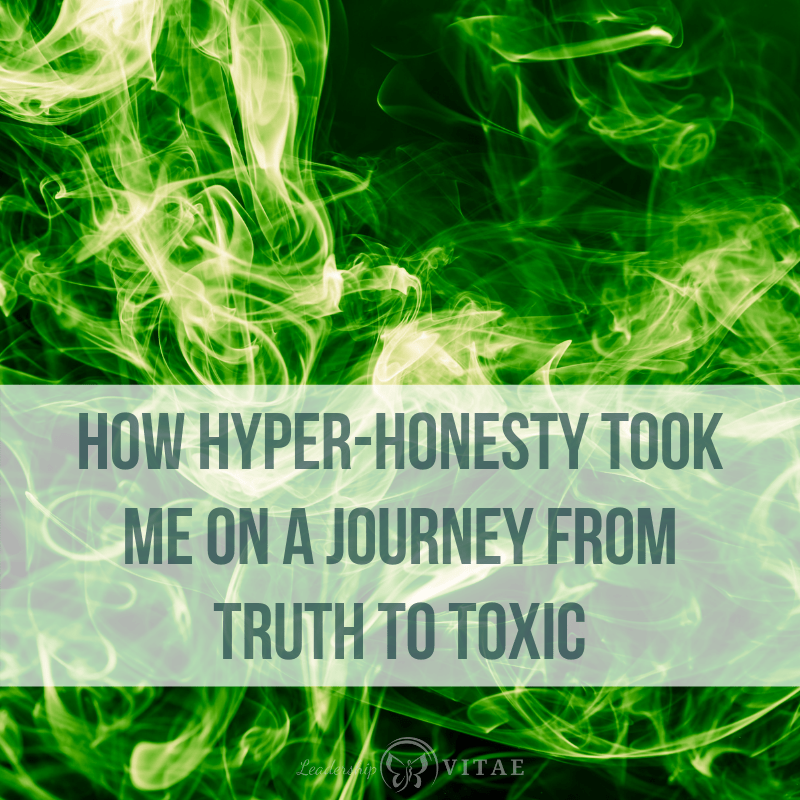
I was on the phone with a close friend of mine, and she paid me a compliment. I’ve been working on saying “thank you,” but my first instinct was to argue. To give all the reasons why her compliment was unfairly given.
At first, she thought I was suffering from imposter syndrome. Maybe, but it didn’t seem to fit. I had very real reasons why her compliment didn’t seem earned and I didn’t want her to believe an untruth.
As I was considering our conversation, I had an epiphany. I realized I have an obsession with honesty. I struggle with allowing myself, or anyone else, to believe something that isn’t true.
Being honest and making sure no one around us believes untruths may sound noble. I certainly thought so. Until I realized that it can be limiting. For me and those around me.
Separating truth from fiction
Growing up, my mother lived in a different world than the rest of us. Stories changed based on the audience. Facts were adjusted to support the narrative. The ends justified the means.
It was a survival mechanism to search out the truth and hold on to it for dear life. It was difficult at times to know for sure what was true and what wasn’t. Even when we saw something with our own eyes, or heard it with our own ears.
Reality was challenged daily. Honesty was my life raft.
It may come across that I want to be right. I have no desire to be right. I have every desire to know and share what is true.
As a rule, I don’t lie and I don’t handle being lied to very well. I recognize that that my truth is not universal, and accept that there is no “one truth”. Yet I still struggle with allowing someone to believe an untruth when I hear it. Especially about me.
Toxic honesty
Ever explained, in detail, why a compliment wasn’t truly earned instead of just saying “thank you”? Argue so many points that those around you think [he/she] “just wants to be right?”
In a pursuit for truth, we can quickly go from something noble to something toxic.
When we are hyper-focused on honesty, we are limited by what we perceive to be the truth. We leave no room for an alternate view. It’s possible that what we see is constrained, and someone else’s perspective could help adjust or expand our own.
While honesty is important, integrity is the higher goal. And integrity isn’t only about seeking truth. It’s allowing others their own.
Whether we push hard to get to the “right answer” or reject a compliment, we may be focused on what we think is the truth. On avoiding a lie, fraud, or mistake. In reality, we risk gaslighting others. Causing them to question what they are experiencing.
In my own obsession over honesty, I may inadvertently create the same type of environment I grew up in. Or, per my friend when we had a follow up discussion, we end up suffering from “so much arrogance” in prioritizing our perceived truth.
The truth is not finite
There is no one truth. About a situation, us, or anyone else. What we see may very well be true from where we sit. That doesn’t have to invalidate another’s experience or perspective.
Two conflicting thoughts can exist in the same space. Truth is not universal or finite, and it’s rarely permanent. What’s true today could be something else tomorrow.
I still believe honesty and integrity are noble pursuits. But not at the expense of others. Instead, we can:
- Do our best to live in truth
- Be open to alternate perspectives
- Have awareness that there are no universal truths
- Accept that what others see and experience may be conflicting but no less true
Rarely are things as simple as 1 or 0. Instead, there are infinite numbers in between. That variation provides space for learning and growth if we are willing look past the either/or to find it.








